This article was co-authored by Alan O. Khadavi, MD, FACAAI. Dr. Alan O. Khadavi is a Board Certified Allergist and a Pediatric Allergy Specialist based in Los Angeles, California. He holds a BS in biochemistry from the State University of New York (SUNY) at Stony Brook and an MD from the State University of New York Health Science Center at Brooklyn. Dr. Khadavi completed his pediatric residency at Schneider Children’s Hospital in New York, and then went on to complete his allergy and immunology fellowship and pediatric residency at Long Island College Hospital. He is board certified in adult and pediatric allergy/immunology. Dr. Khadavi is a Diplomate of the American Board of Allergy and Immunology, a Fellow of the American College of Allergy, Asthma & Immunology (ACAAI), and a member of the American Academy of Allergy, Asthma & Immunology (AAAAI). Dr. Khadavi's honors include Castle Connolly’s list of Top Doctors 2013-2020, and Patient Choice Awards "Most Compassionate Doctor" in 2013 & 2014.
There are 9 references cited in this article, which can be found at the bottom of the page.
This article has been viewed 18,753 times.
People with pet allergies know the frustrations and discomforts associated with visiting friends and family who have pets. Not only can pet dander and fur inconvenience people with pet allergies, but they can cause serious and sometimes life-threatening allergic reactions. However, by seeking medical treatment, managing your visit, and communicating with the person you’re visiting, you may be able to successfully deal with visiting someone’s home who owns a pet.
Steps
Staying on Top of Your Health Care
-
1Talk to your doctor. Make sure to see your doctor regularly so that they can treat your allergies and keep tabs on your overall health. Without consulting your doctor, you won’t have the information you need to deal with allergies when you visit someone’s house.
- Let your doctor know if you’ll be putting yourself in a situation where you might have a potential allergic reaction.
- Tell your doctor about any allergy symptoms you are having, such as sneezing, runny or stuffy nose, facial pain (from nasal congestion), coughing, chest tightness, shortness of breath, wheezing, watery, red or itchy eyes, skin rash or hives.[1]
- Keep annual appointments. To manage your health, you also need to make sure that you keep annual and semiannual appointments with your general practitioner or allergist.
- Have periodic allergy testing done. Many doctors suggest allergy testing every two years. However, adults may go three to five years between tests.[2]
- Ask your doctor about immunotherapy, or allergy shots. This treatment option will reduce your sensitivity to an allergy, such as pet dander.[3]
-
2Take allergy medication. One way to deal with pet allergies is to take or use allergy medications that prevent or reduce the symptoms of your allergy.[4] Ultimately, allergy medication may make it a lot easier for you to function in an environment that contains pet allergens. Many of these medications are available over-the-counter and some are available by prescription only. Consider:
- Antihistamines like Zyrtec, Clarinex, and Allegra.
- Decongestants like Sudafed.
- Antihistamine decongestant combinations like Claritin-D or Allegra-D.
- Corticosteroid nasal sprays like Nasonex, Flonase, and Veramyst.
- Consult with your physician before taking allergy medication.[5] Avoid taking a combination of medications unless directed by physician and follow the instructions on the medication package.
Advertisement -
3Bring emergency prescription medications if needed. Ultimately, your allergy medication might not work. Thus, you may find yourself in an emergency having a severe allergic reaction to someone’s pet. To safeguard against this, make sure you bring any emergency medications you might need to treat yourself. Make sure that you carry:
- An albuterol inhaler, if you have one. This is especially important for asthmatics.
- An epinephrine injection, such as an EpiPen.
- Any other medication your doctor recommends.[6]
-
4Familiarize others with epinephrine injections. In the event of a severe allergic reaction, you may need to have someone use an epinephrine injection on you.
- Tell them they need to hold the EpiPen against your mid-outer-thigh.
- Once positioned, they need to push it firmly until the pen clicks and the needle enters your skin.
- Have them hold the pen for a few seconds.
- Let them know that they should never inject the pen into any body part other than the thigh.[7]
Managing Your Visit
-
1Stay outside, if you can. You and your friend may want to consider structuring your visit to minimize potential allergic reactions. You can do this by holding your visit outside, where pet dander, hair, and dust do not accumulate as easily.
- If you’re visiting for a casual talk, suggest you have coffee, tea, or wine on the porch or deck.
- If you’re visiting for a meal, suggest you grill your food and eat outside.
- If you and your child is visiting for a play date, suggest that the kids play outside.[8]
-
2Avoid fabric couches, chairs, or carpeted rooms. When visiting, make sure to stay away from fabric couches or chairs that might harbor dust, dander, or pet hair. In addition, stay out of carpeted rooms, if you can. This is important, as fabric and carpet will retain hair, dander, and dust even after being vacuumed.
- Sit on leather or vinyl couches or arm chairs.
- If given a choice, sit on a wooden chair or other furniture.
- Hang out in rooms with tile or wood flooring.
-
3Stay in well-ventilated areas. A great way to manage your visit is to make sure you spend the majority of time in an area with good air flow and a minimal accumulation of dust and dander. By doing this, you’ll minimize the chance of being overcome by allergens that may set off a bad allergic reaction.
- Ask your guest to open the windows in advance of you coming. Before you visit, say something like “I’m worried about my allergies. Could you maybe open the windows?”
- Try to sit in rooms where there are multiple air vents and/or doors.[9]
-
4Wash your hands and change your clothing after exposure to pets. Washing your hands and changing clothing after exposure in a home with a pet can help you to manage your symptoms. Make sure to do this after coming into contact with pets.
- For example, if one of the cats rubs up against your pant leg and gets hair on your pants, then you might want to change into a fresh pair, or at least use a lint roller.
- If you pet or hold any of the pets, wash your hands right after.
-
5Be realistic. You should also realize that there may be some cases in which you won’t be able to visit a friend or family member at their home.[10]
- If you absolutely must attend, try to only stay for a limited amount of time – like under an hour.
- If your allergy is extreme or your reaction is life-threatening, you should not visit.
- If you know that the person you are visiting does not keep a clean home and won’t take any steps to safeguard your health, don’t visit.
- If you’ve visited someone’s home and had a negative reaction, don’t repeat this mistake.
Communicating with the Person
-
1Let them know that you have allergies. Initiate a conversation in which you inform them about your allergy. In this conversation, you’ll give them an idea about your allergies and their severity. This way, they’ll have the information they need to ensure you have a pleasant experience at their home.
- You want to be clear you have genuine concerns about your health. Consider saying “I have allergies that make it hard for me to visit people with pets.”
- Ask the person exactly what types of pets they have. This is important, as not all pets will aggravate your allergies.
-
2Be polite. When initiating a conversation with someone about your allergies, you need to make sure you are polite. Do not make any demands about what they need to do to prepare for you. After all, you are their guest – you do not have to attend.
- If they offer to clean their home or make special accommodations, make sure to thank them. Never say “You need to thoroughly clean your house or I can’t visit.” Instead, politely explain your needs.
- You may want to consider acknowledging that you understand how your condition might inconvenience them.
- Offer to relocate your meeting. For instance, instead of having coffee at their home, you can have coffee at a coffee shop.[11]
- Most people who entertain frequently should be cognizant of pet allergens and the problems they create.[12]
-
3Request that the person doesn’t allow their pets to roam. Consider politely suggesting that your host removes their pets from public spaces in their home while you are visiting. While this won’t remove all the danger, it will lower the chance of you having a serious allergic reaction.
- Say something like “Sometimes my allergies are okay if the pets aren’t in the room at the moment.”
- Let them know that direct contact with a specific type of pet may aggravate your allergy.
- Many pet owners have “pet free zones” that they entertain guests in. If they have one, they may let you know.[13]
-
4Excuse yourself, if needed. Despite all of the steps you and your host have taken, you still may need to leave their home earlier than expected. If your symptoms are turning severe, politely excuse yourself.
- If you're in the middle of the conversation, redirect it. Say, "I think I'm having a bad allergic reaction."
- Instead of leaving right away, ask them if you could finish your conversation outside. Once outside, if possible, finish chatting with them.
- Before you leave, thank them for having you over. Let them know they should not feel bad. Consider saying "This is just one of the unpleasant side-effects of having allergies. How about if we make plans to see each other at my house (or another location) next time?"
Expert Q&A
-
QuestionHow can I help someone with pet allergies who's visiting me?
 Alan O. Khadavi, MD, FACAAIDr. Alan O. Khadavi is a Board Certified Allergist and a Pediatric Allergy Specialist based in Los Angeles, California. He holds a BS in biochemistry from the State University of New York (SUNY) at Stony Brook and an MD from the State University of New York Health Science Center at Brooklyn. Dr. Khadavi completed his pediatric residency at Schneider Children’s Hospital in New York, and then went on to complete his allergy and immunology fellowship and pediatric residency at Long Island College Hospital. He is board certified in adult and pediatric allergy/immunology. Dr. Khadavi is a Diplomate of the American Board of Allergy and Immunology, a Fellow of the American College of Allergy, Asthma & Immunology (ACAAI), and a member of the American Academy of Allergy, Asthma & Immunology (AAAAI). Dr. Khadavi's honors include Castle Connolly’s list of Top Doctors 2013-2020, and Patient Choice Awards "Most Compassionate Doctor" in 2013 & 2014.
Alan O. Khadavi, MD, FACAAIDr. Alan O. Khadavi is a Board Certified Allergist and a Pediatric Allergy Specialist based in Los Angeles, California. He holds a BS in biochemistry from the State University of New York (SUNY) at Stony Brook and an MD from the State University of New York Health Science Center at Brooklyn. Dr. Khadavi completed his pediatric residency at Schneider Children’s Hospital in New York, and then went on to complete his allergy and immunology fellowship and pediatric residency at Long Island College Hospital. He is board certified in adult and pediatric allergy/immunology. Dr. Khadavi is a Diplomate of the American Board of Allergy and Immunology, a Fellow of the American College of Allergy, Asthma & Immunology (ACAAI), and a member of the American Academy of Allergy, Asthma & Immunology (AAAAI). Dr. Khadavi's honors include Castle Connolly’s list of Top Doctors 2013-2020, and Patient Choice Awards "Most Compassionate Doctor" in 2013 & 2014.
Board Certified Allergist I would talk to them before they visit to find out what their specific allergies are and what they need to avoid an allergic reaction. Likely cleaning your house and keeping your pet in another room will help.
I would talk to them before they visit to find out what their specific allergies are and what they need to avoid an allergic reaction. Likely cleaning your house and keeping your pet in another room will help.
References
- ↑ http://acaai.org/allergies/types/pet-allergy
- ↑ http://acaai.org/resources/connect/ask-allergist/Allergy-Testing
- ↑ https://www.humanesociety.org/resources/how-live-allergies-and-pets
- ↑ Alan O. Khadavi, MD, FACAAI. Board Certified Allergist. Expert Interview. 29 July 2020.
- ↑ https://newsinhealth.nih.gov/2014/10/cold-flu-or-allergy
- ↑ https://my.clevelandclinic.org/health/diseases/8610-allergy-overview
- ↑ https://www.epipen.com/about-epipen/how-to-use-epipen
- ↑ https://www.epa.gov/indoor-air-quality-iaq/biological-pollutants-impact-indoor-air-quality
- ↑ https://www.epa.gov/indoor-air-quality-iaq/biological-pollutants-impact-indoor-air-quality
- ↑ Alan O. Khadavi, MD, FACAAI. Board Certified Allergist. Expert Interview. 29 July 2020.
- ↑ http://www.vetstreet.com/our-pet-experts/are-your-holiday-guests-allergic-to-pets-here-are-5-ways-to-make-them-more-comfortable
- ↑ http://www.vetstreet.com/our-pet-experts/are-your-holiday-guests-allergic-to-pets-here-are-5-ways-to-make-them-more-comfortable
- ↑ http://www.vetstreet.com/our-pet-experts/are-your-holiday-guests-allergic-to-pets-here-are-5-ways-to-make-them-more-comfortable
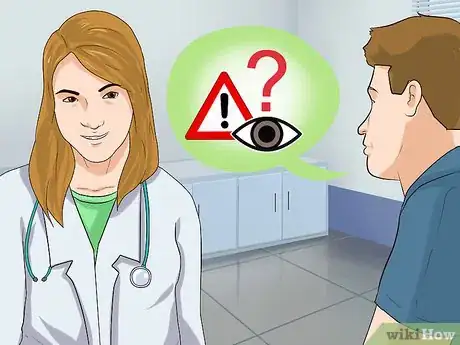







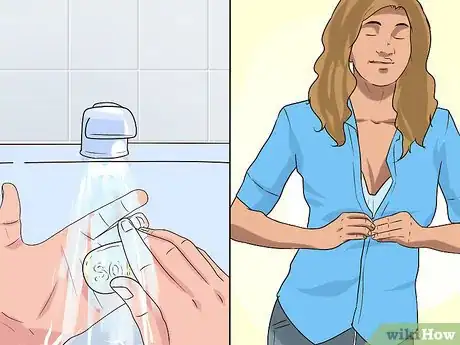
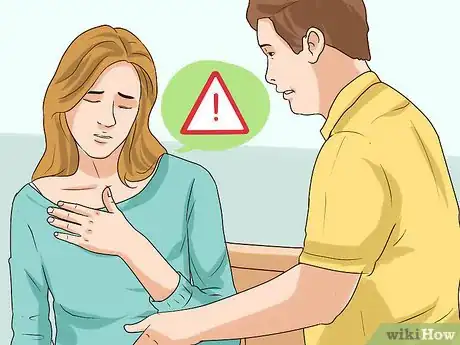
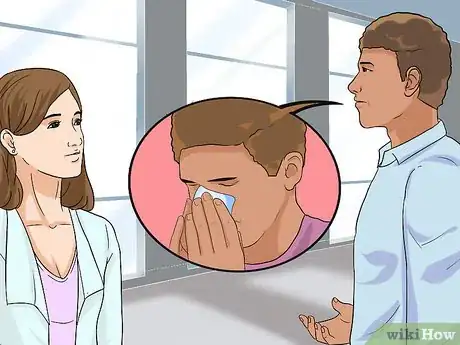
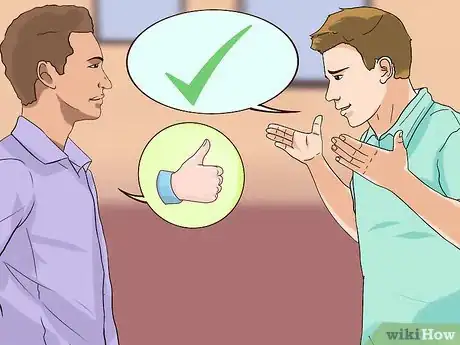
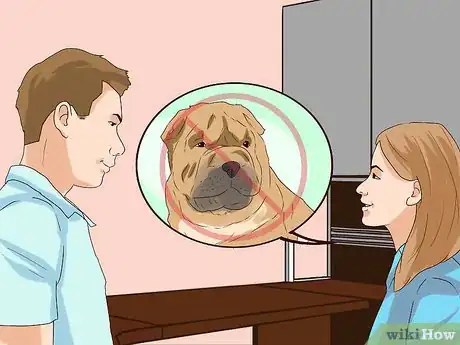
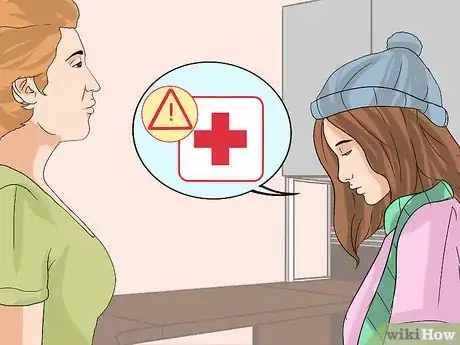
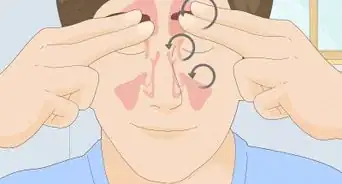







-Step-17-Version-3.webp)











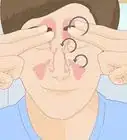






































Medical Disclaimer
The content of this article is not intended to be a substitute for professional medical advice, examination, diagnosis, or treatment. You should always contact your doctor or other qualified healthcare professional before starting, changing, or stopping any kind of health treatment.
Read More...